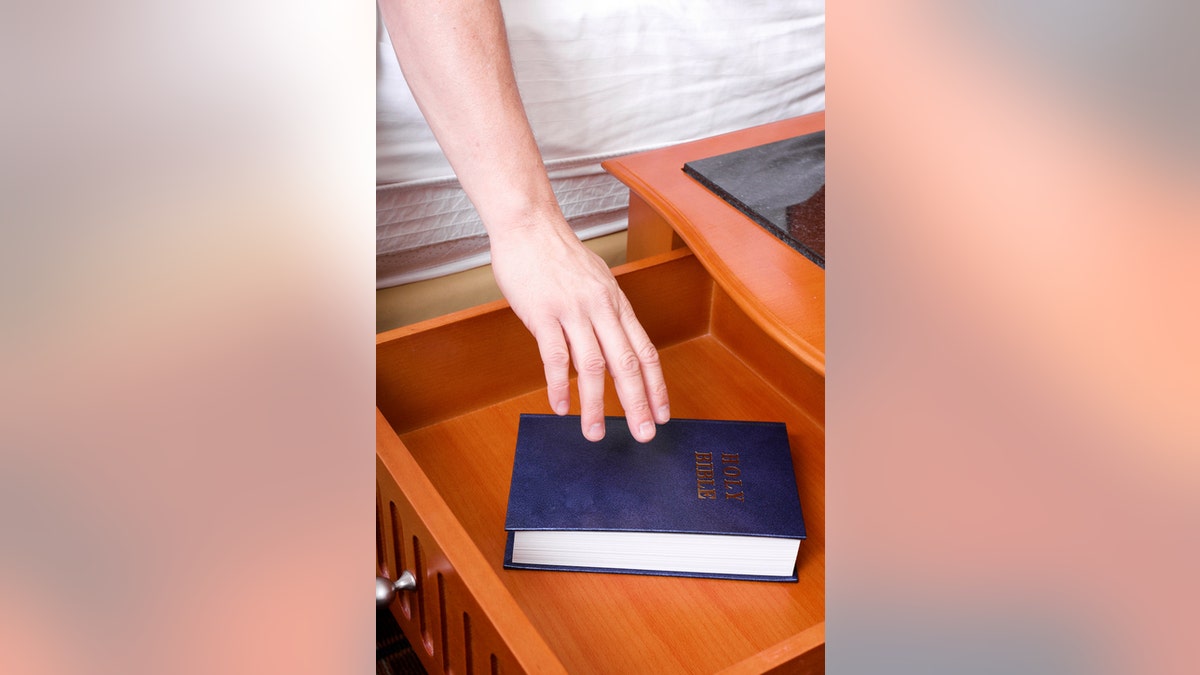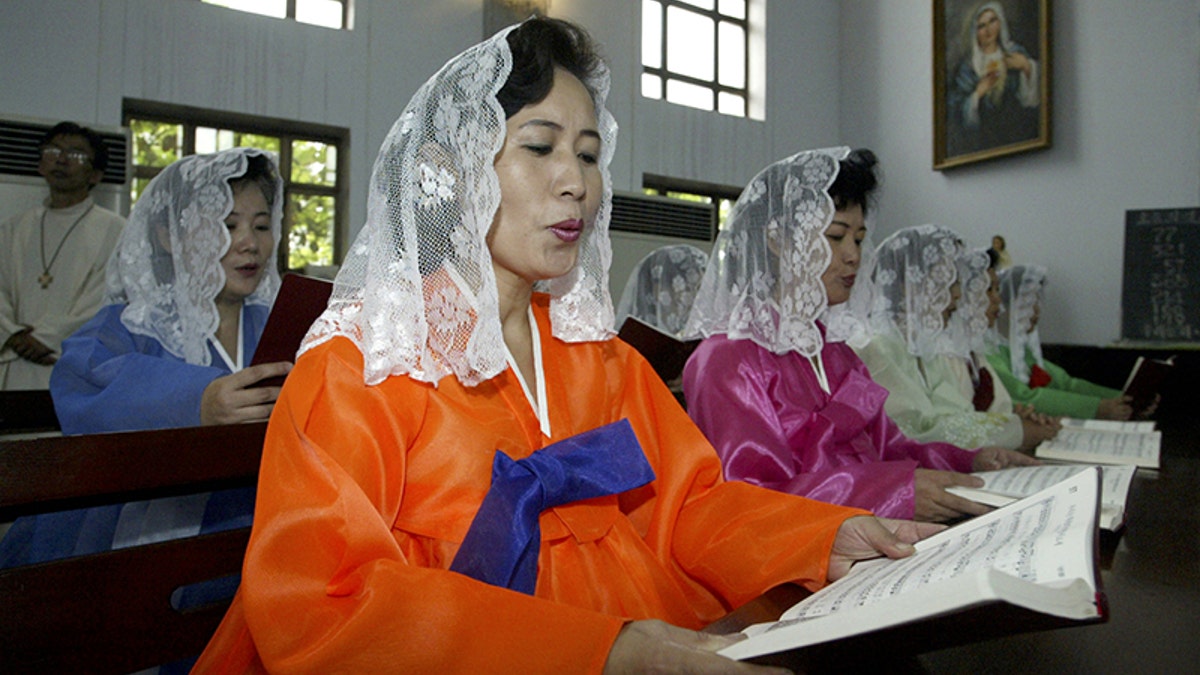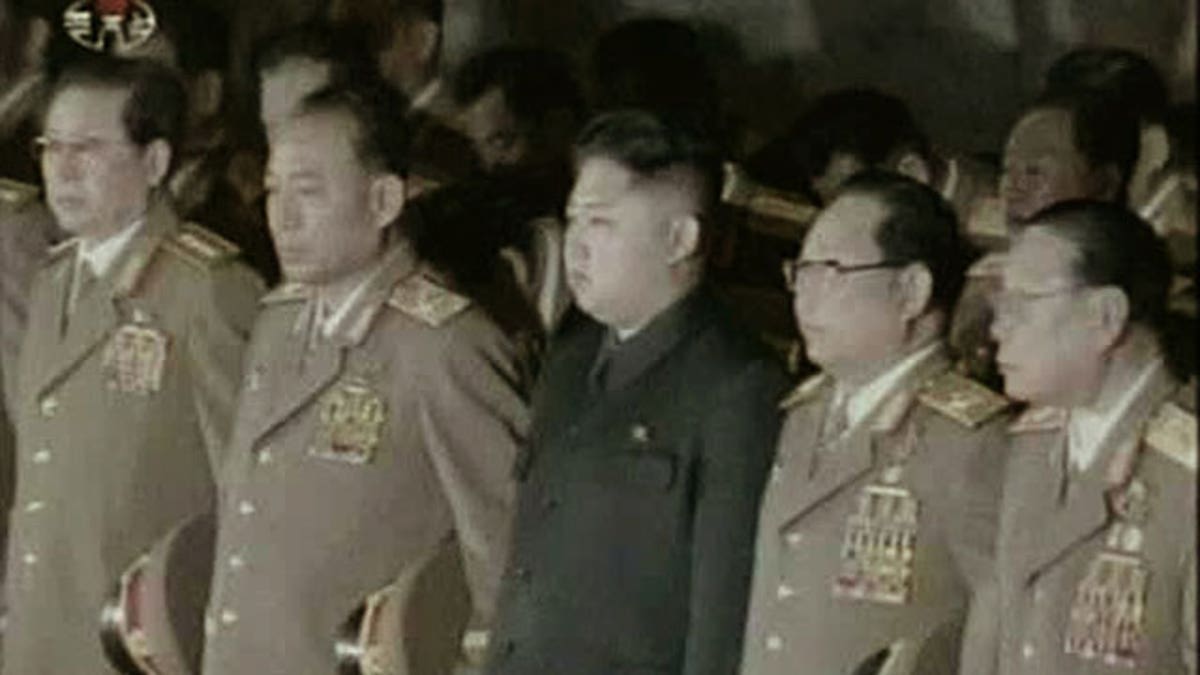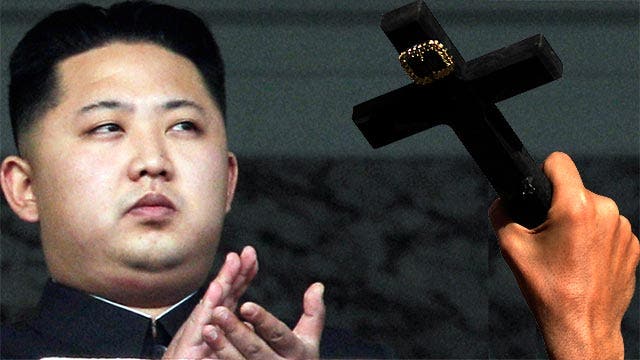North Korea worst for Christian persecution
Open Doors USA's Dr. David Curry on where violence against Christians has increased worldwide
On the nights when the winds are light and the skies are dark, hundreds of helium-filled balloons are sent up and away from multiple points in South Korea, destined a few miles away and into North Korea. Only these are no ordinary balloons — they are considered “Bible Balloons,” adorned with the Words of God printed in Korean or flash drives featuring the entire texts of the Testament.
It is one of the few creative — and inherently dangerous — ways bibles are smuggled into the oppressive dictatorship in the hopes that impoverished North Koreans will know that they aren’t forgotten. Other activists, such as American pastor Eric Foley, have opted for a much larger hydrogen-fueled 40-foot balloon brimming with bibles and testimonials. These are then dropped into rural areas with the help of GPS technology, in the hopes that even just one will be picked up.
“Growth in Christianity does not happen in waves but always one at a time,” Foley — CEO of Voice of the Martyrs Korea — told Fox News.
Nonetheless, the regime is well aware of the biblical balloons — which have been at the center point of bible smuggling since the 90’s — and if the endeavor to shoot them down fails, anyone spotted collecting the contents is immediately arrested. These days, flash drives, SD cards, leaflets and photos featuring the strictly outlawed religious texts are also disseminated not only from balloons but also through the use of large drones — and more and more, bibles are being disseminated in electronic rather than print form.
Such smuggling programs generate little funding or support from outside governments, and are generally left up to missionaries, nongovernmental organizations and activists.
“It is becoming too dangerous and bulky to bring in hard copy bibles,” one Korean source familiar with the operations said. “Over the past 10 years, there has been a growing demand for ‘outside’ information — whether religious or secular.”
But still, there are on the on-foot actors.
“The bibles are printed in another country, and then secretly taken and distributed in North Korea, usually a few at a time,” Vernon Brewer, founder and president of Christian humanitarian organization World Help, told Fox News. “The people who smuggle bibles have to be extremely careful, changing their route and taking other precautions to avoid getting caught.”

Bible smuggling into North Korea is a dangerous but growing business (Arthur Carlo Franco)
According to Brewer, once those bibles are inside, they are passed along through trusted believers, and he and his organization send a couple of different sizes — but the most popular versions are the small New Testaments.
“This is because they fit in the palm of your hand and can easily be exchanged during a handshake or left in strategic locations for people to find,” he continued.
HOW TO SUCCESSFULLY SUE ISIS, HEZBOLLAH OR THE REGIMES OF IRAN, SYRIA AND NORTH KOREA
NORTH KOREA: HOW CHRISTIANS SURVIVE IN THE WORLD'S MOST ANTI-CHRISTIAN NATION
Another smuggling method in is via the occasional — and lawbreaking — tourist. Although any visitors to the hermit kingdom are rigorously warned by external tour companies to take in absolutely no religious texts or symbols and refrain from any type of discussion on it that could be interpreted as proselytizing, some still take the risk. And pay the price.
Just ask Ohio native, Jeffrey Fowle. A devout Christian and father of three, the perpetually curious 58-year-old journeyed to North Korea on an organized tour in 2014, and was detained after deliberately concealing a Bible under a trash can in the men’s room of a Pyongyang nightclub. He had hoped the bootlegged bible — which contained his name and family photographs — would make its way to someone in the underground Christian community.
Three years later, in May of this year, his release was finally secured by U.S officials.
Fowle is one of the lucky ones. Religious freedom is written into the country’s constitution, but the reality on the ground paints a much different picture. For the vast majority of trapped Christians inside the brutal dictatorship, the consequence is life in a labor camp or a public execution by firing squad. Their relatives too are often subject to callous retribution.

North Koreans read mass at one the "official" Catholic churches in Pyongyang. While religious freedom is part of the North Korean constitution, Christians must conceal their faith or risk death by the regime. (REUTERS)
“The North Korean regime’s legitimacy and claim to power flow out of the idea that Kim Il Sung, Kim Jong Il and now Kim Jong Un are divine beings. North Korean children are taught to pray before a meal, ‘Thank you Father Kim Il Sung for our food,’” Todd Nettleton of Voice of Martyrs Radio pointed out. “They sing praise choruses to the Kims. It is very much a religion. So what makes the regime and the government so upset about a North Korean being a Christian is not just that they are following a different religion, or even that they are following a ‘Western’ religion. What those Christians are doing literally undermines the very veracity of the North Korean regime. If Jesus is Lord, then Kim Jong Un can’t be.”
Furthermore, Christian North Korean defectors in the border areas of South Korea broadcast gospels on an almost daily basis. Roughly 20 percent of the 25 million North Korean population own a radio — an illicit item — and many will risk their own lives to tune in.
“Radio, just as in the days of the Cold War, remains an incredibly useful tool to inject truth and the Gospel into North Korea,” said Jeff King, president of advocacy group International Christian Concern. “And we remain an ardent supporter of pushing Christian content into North Korea through radio and other means.”
But despite the harsh penalties that come with praising anyone of any belief system outside the Kims, there is a sense that an ascending number of North Koreans are turning to Christianity.
“The church is growing at a faster rate in North Korea than in South Korea, where the church has declined in membership every year since 1991,” Foley observed.
According to the prominent pastor, the uptick in the North is mainly due to the covert network of North Korean Christians, rather than religious advocates from the outside.
“The reason why is that the work of missionaries on the North Korea/China border is easily infiltrated and neutralized by North Korean state security agents, but the work of underground North Korean Christians has continued faithfully for more than three generations,” he explained. “They don’t smuggle large numbers of bibles into North Korea, but instead, certain members of the underground church carry Bibles across the border one at a time, often in the form of MP3 players.”
These Christians are native North Koreans who are given permission to travel to China on relative visas or work visas. Some have established relationships with border guards who accept bribe money — and are under close and careful surveillance themselves — who turn a blind-eye to the illegal material being brought back in, while others have it carefully concealed from all.

Dec. 24, 2011: Kim Jong Un, center, North Korean leader Kim Jong Il's youngest known son and successor, with military officials, stand in front of his father's body displayed in a glass coffin, not in photo, at Kumsusan Memorial Palace in Pyongyang, North Korea. (AP)
Ben Gabriel, Initiative Director for the missionary Alpha Relief, noted that the regime likely knows exactly when and how the bible smuggling is happening, but also knows there is only so much that can be done to stop it.
“North Korea no longer has an iron grip on the spread of information in the country,” he added. “The Christian message has a strong appeal to people trapped in that kind of system. If you’ve given your life over to Christ, no one can take it from you. That is true freedom. It is freedom from fear.”





















